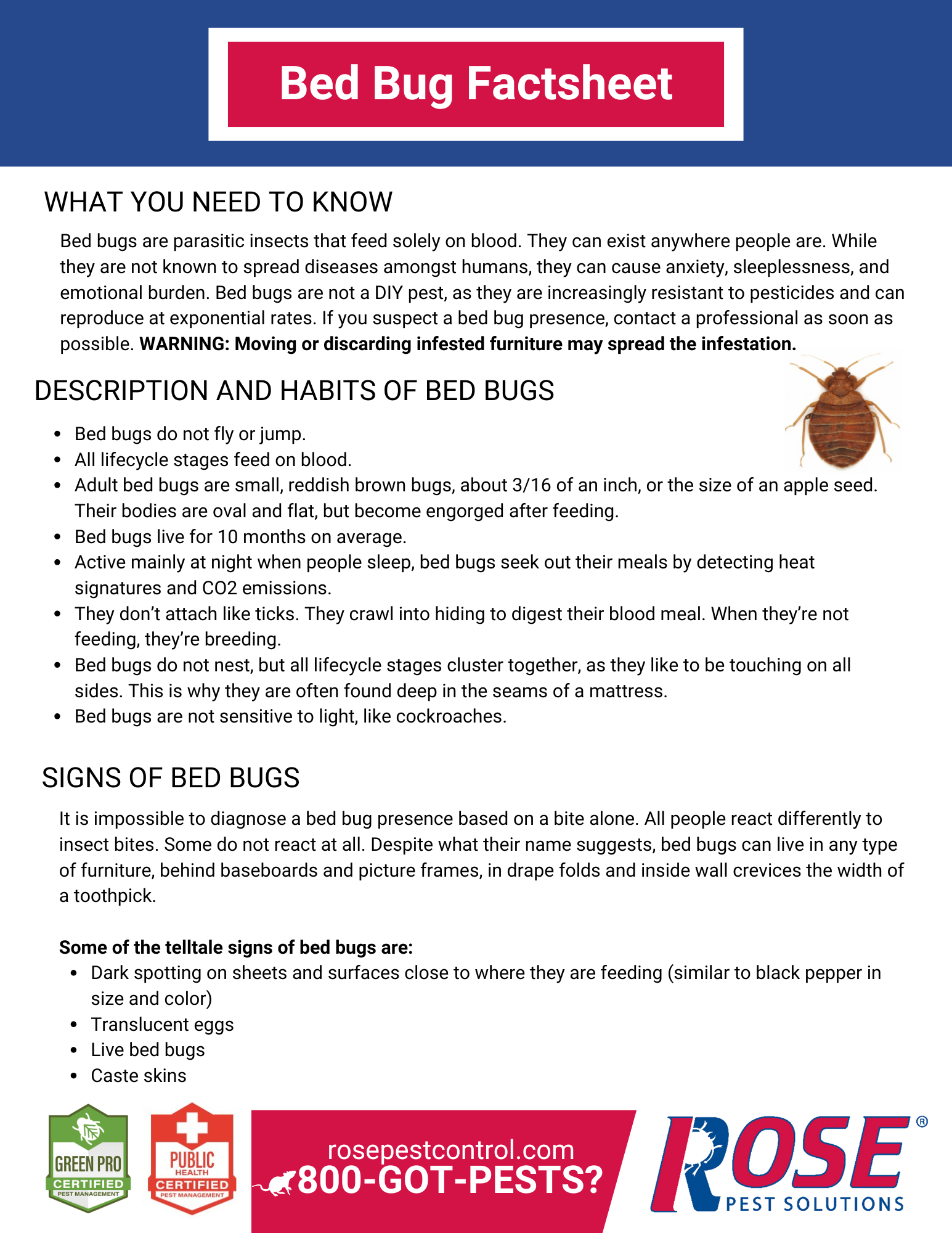Unknown Facts About Bed Bug Services
The Basic Principles Of Bed Bug Services
Table of ContentsSome Known Factual Statements About Bed Bug Services Rumored Buzz on Bed Bug ServicesFacts About Bed Bug Services UncoveredThe 7-Second Trick For Bed Bug Services
A professional bed bug inspection is a meticulous process and relies on expertise. Bed bugs are small, elusive, and adept at hiding that seek cracks, crevices, and furniture seams. Because of their secretive nature, detailed examination is necessary to identify the full scope of the problem. Professional inspectors use a combination of tools, procedures, and knowledge to detect bed bugs accurately, reducing the risk of escalation.The first step in any professional inspection involves knowing the habits and life cycle of bed bugs. Bed bugs belong to the Cimicidae family and undergo a life cycle that includes eggs, nymph stages, and adulthood. Adults are oval, flat, reddish-brown insects that lack wings and have long legs and antennae. Their mouthparts are designed to pierce skin and extract blood, often causing red, itchy welts on hosts. Knowing these traits helps inspectors anticipate hiding spots.
Early detection is critical for effective management. Professionals search for telltale signs such as tiny ink-like droppings, molted skins, and egg clusters (Bed Bug Services). Even one female can produce dozens of eggs quickly, resulting in serious outbreaks. Evidence of discarded skins and eggs indicates active infestation and necessitates immediate attention
Preparing for an inspection requires attention to detail. Inspectors often recommend clearing clutter from treatment areas, which facilitates examination of hard-to-reach areas. Bedding and linens may be cleaned thoroughly and sealed in plastic bags, and then kept in plastic bags to maintain cleanliness. Wall decor, mirrors, and pictures may need to be removed to allow access to potential bed bug harborages. Vacuuming furniture and floors may capture visible bugs and eggs, and vacuum bags should be disposed of immediately outside.
Not known Incorrect Statements About Bed Bug Services
The inspection itself is systematic and thorough. Inspectors examine mattresses, bed frames, and headboards, looking closely at creases, see this here joints, and folds. Upholstered furniture, including seating furniture, is carefully examined, with attention to seams and cushions. Baseboards, moldings, the edges of wall-to-wall carpeting, electrical outlets, closets, and storage areas receive detailed attention, as these can be key areas for infestation.
Specialized tools help inspectors find hidden pests. Flashlights, magnifying lenses, multi-tools, and mirrors allow examination of tight spaces. Monitoring devices like interceptor traps or sticky pads aid in identifying infestation trends. Some companies use detection dogs, which accurately identify active infestations, distinguishing them from residual signs.

Meticulous documentation is essential. Inspectors document all see this signs, infestation levels, and suggested measures. This ensures accountability and facilitates discussion with residents. Residents are often advised not to remove blood-stained sheets or vacuum infested areas, as this ensures accurate results.
After inspection, a monitoring plan may be put in place to confirm the presence of bed bugs and track activity. Continuous monitoring identifies surviving insects after treatment, and asking residents about bites and sightings helps pinpoint problem areas. Cooperation from residents ensures accuracy.
Bed Bug Services for Dummies

Professional inspections site web are more reliable than self-inspections. Trained inspectors spot subtle signs overlooked by untrained eyes, avoid unnecessary treatments, and provide certainty.
Bed bug inspections are particularly important in high-risk environments. Inspectors check neighboring rooms and shared spaces to identify potential spread (Bed Bug Services). This stops further spread
In summary, a professional bed bug inspection involves understanding bed bug biology, preparing the space, conducting systematic inspections, using specialized tools, documenting findings, and implementing monitoring protocols. Each step contributes to accurate detection, effective treatment planning, and long-term prevention.
Not known Factual Statements About Bed Bug Services
